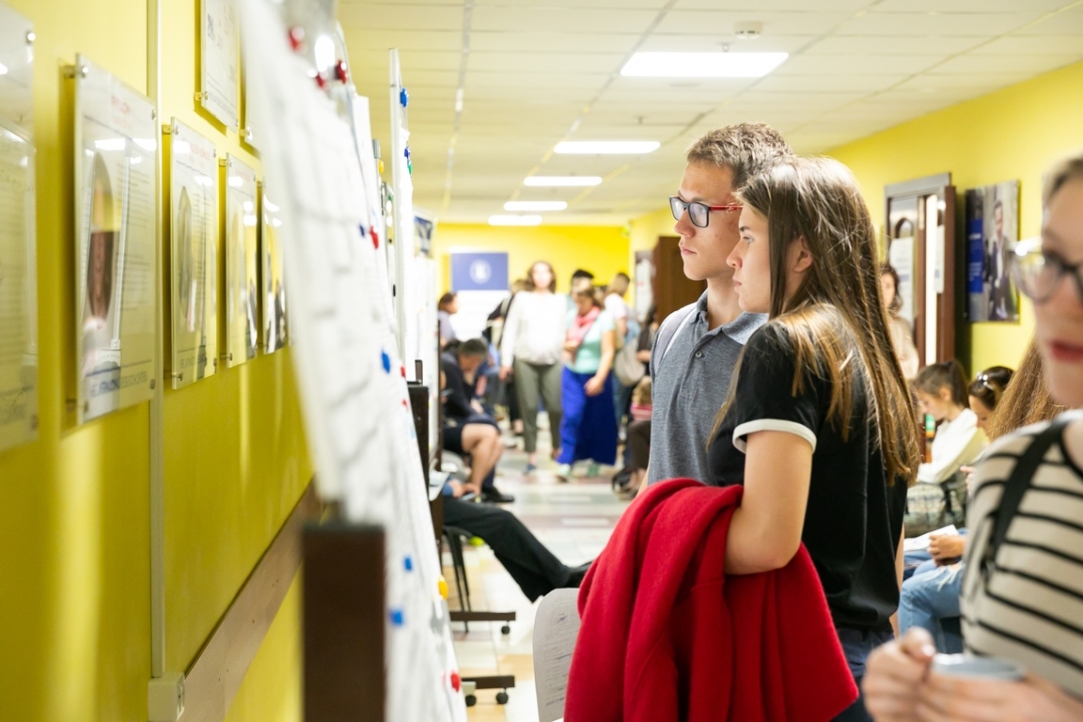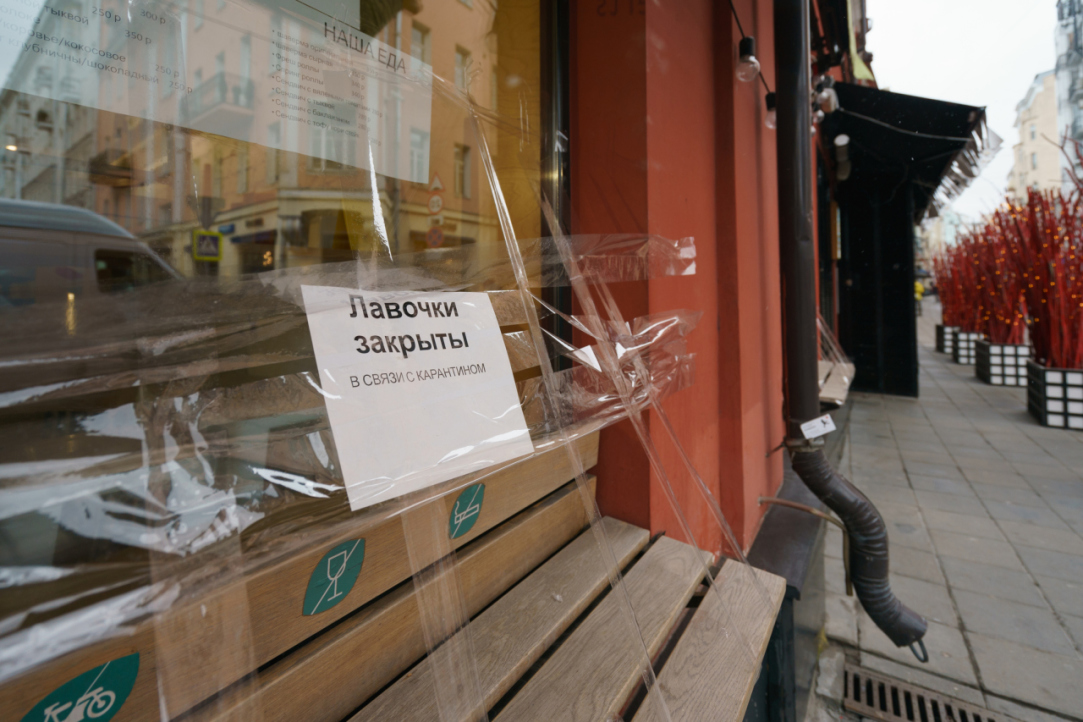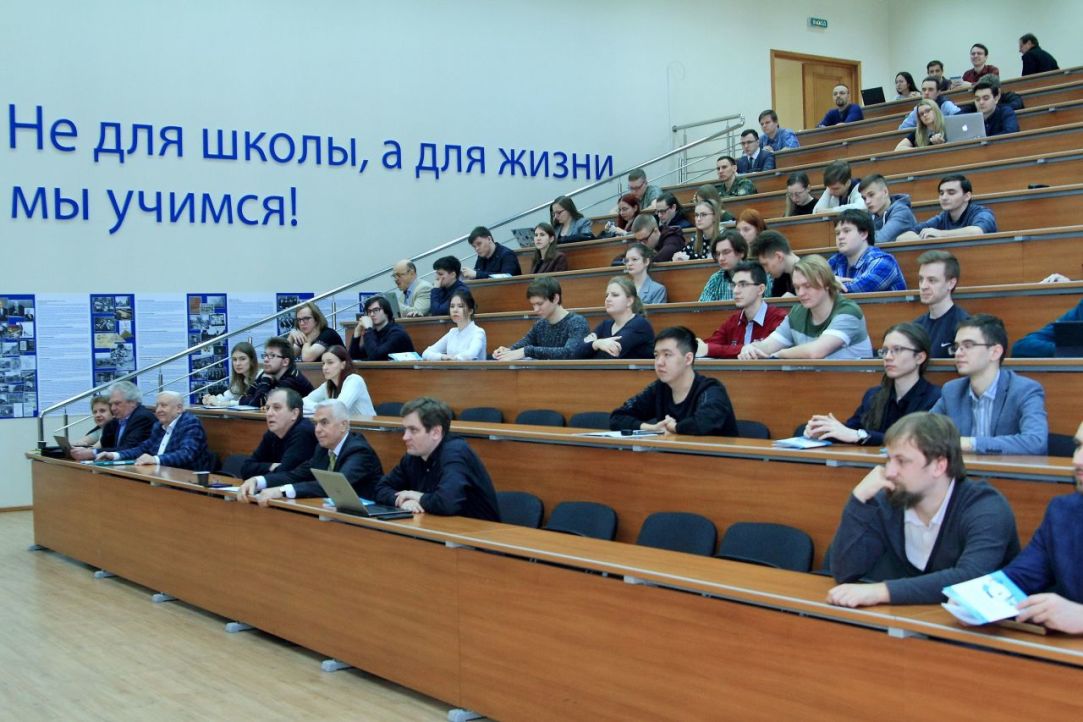
HSE Showcases Innovations in Urbanism and Neural Networks at Russia’s Geek Picnic 2020
This year, Russia’s largest science and technology festival, Geek Picnic, was held online for the first time. Despite the new format, the festival programme included all of the event’s usual key features: expert lectures, workshops, competitions, and opportunities to socialize and network with fellow tech and science enthusiasts. HSE University once again served as the festival’s content partner.

'I Hope That I Will Be Able to Travel to Moscow to Be with My HSE Colleagues and Friends Soon'
Jonathan Calof has been cooperating with HSE since 2009. In an interview with HSE News Service he talks about how his involvement with HSE began, what projects he has been part of, and how he has organized his online work during the recent lockdown.
.jpg)
Joint Seminar of HSE Faculty of Biology and Biotechnology and George Mason University
First-year undergraduate students of the HSE Faculty of Biology and Biotechnology took part in an online seminar at George Mason University (USA). The seminar was part of the Coronavirus Research Update summer course, taught by Professor Ancha Baranova.

Slut-Shaming by Lend-Lease
Russian women who associated with Soviet allies during World War II were subjected to unusually harsh persecution. This was especially true in the north of the country that saw the arrival of thousands of U.S. and British sailors. For having contact with these foreigners, Soviet women received the same severe punishment meted out to Nazi collaborators: charges of treason and 10 years in a forced labour camp. HSE Associate Professor Liudmila Novikova studied how and why this policy shaped their destinies.

Why High-Ability School Graduates Choose Low-Quality Universities
According to the findings of HSE researchers, up to one-quarter of school graduates in Moscow enrol in low-quality universities despite scoring highly on their Unified State Exam, the final school exam and a standard university admission mechanism in Russia. This academic mismatch limits their life opportunities and often stems from unequal starting conditions in the family and at school.

Participants of Escapes from Modernity Online School Discuss Post-Coronavirus World
Experts, participants and moderators gathered to share their predictions about the future of the humanity after the pandemic. What paradigm will replace anthropocentrism? What will happen to globalization, consumer civilization, and megalopolises? How will the virus impact policy and democracy and what will post-COVID ethics and anthropology look like?

Russian Economic Prospects: Moderately Optimistic Forecasts
From April 6–7, the HSE Centre of Development Institute conducted a special survey among professional forecasters on the Russian economy’s prospects for 2020-2021. The experts expect a decline this year due to the coronavirus pandemic and low oil prices this year, but predict that the losses will be fully recouped in 2021.

Four Student Projects with Potential to Become High Tech Start-Ups
The Armensky Annual Inter-University Research and Technology Conference has concluded at MIEM HSE. Out of 200 submitted papers, 32 works by high school, undergraduate and graduate students participated in the event. The HSE News Service has prepared an overview of four HSE student-led projects that were awarded first-class diplomas.

An App for Talking to Trees and Other Projects by the Shukhov Lab
One of the Shukhov Lab’s most significant projects is its master’s programme in Prototyping Future Cities. Graduates of the programme told HSE University Life about innovations they have developed to help preserve the environment, promote balanced growth, and improve cities.

‘Each of Them Survived Thanks to a Real Miracle’
Stories of Salvation, or How We Grew Up, a book co-authored by HSE Lyceum senior Elena Tsybulina, tells the stories of ghetto and concentration camp survivors during WWII. The book was released shortly before International Holocaust Remembrance Day, which is observed on January 27.


Deadline for applications to present academic reports - January 20, 2025